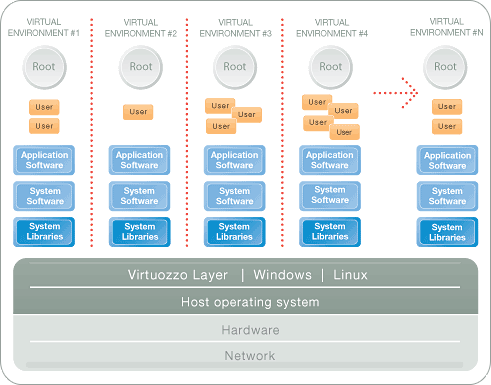VPS
Virtualized servers further use the possibilities of hosting websites as well as applications in general. VPS (Virtual Private Server) allows you to split a physical server into several smaller, virtualized servers. Each virtualized server is running its own instance of the operating system, and the individual clients are perfectly separated from each other. There are several advantages of using VPS. If you plan to host web applications on VPS, you get the ability to customize the entire server - you can customize the MySQL server or PHP (php.ini) settings exactly to your requirements and are not bound by any centralized settings. If you are considering VPS as an alternative to a dedicated server, VPS offers you the option of any scalability with zero downtime. VPS performance can grow as your applications become more demanding / use. If you want to go to the price list of our VPS, continue here.
Virtualization technology
We use virtualization technologies of Parallels Virtuozzo and OpenVZ on our servers. Virtualization takes place at the OS level and eliminates the delay of communication between the virtual server and the physical hardware. As a result, we can offer quick response and performance for each of our clients. The VPS wiring diagram can be seen in the concept below.

The disadvantage of OS-based virtualization is the need to use the same core inside VPS as on a physical server. Because our servers run on Linux distributions, we currently only support Linux VPS (32-bit or 64-bit).